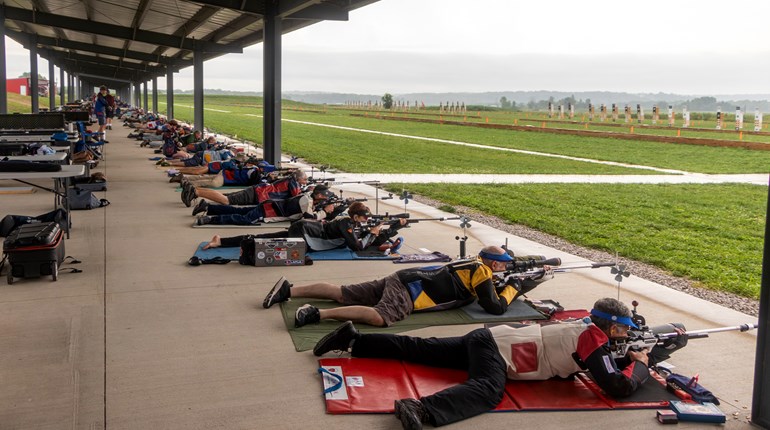
You won’t read Exercise Your Freedom for long without encountering some overt or covert exhortation to compete. We’ve talked about targets, techniques (here, here and here) and top-flight competitors (here and here)—those are just a few examples from various disciplines—and we can promise you’ll hear more in the coming months.
You might rightly wonder why? It’s almost as though we think you can’t become a competent shooter without that competitive experience. To a certain extent, you surmise correctly.
We believe this is especially true when it comes to keeping a sharp edge on handgun skills. While it’s true you can cultivate proper, even excellent, proficiency in a relative vacuum, typical pistol practice is the least like actual usage of all the shooting disciplines.
Outside of actual combat/duty, competition is the only way to drive yourself toward the skills and mindset necessary to make good shots when you must, not merely when you wish. Like it or not, the latter is what mostly results if your shooting remains unstructured. There’s nothing like the timer going off to make a plan evaporate. If you’re serious about “upping” your shooting game, it’s time to add some pressure to your training regimen.Outside of actual combat/duty, competition is the only way to drive yourself toward the skills and mindset necessary to make good shots when you must, not merely when you wish.
The NRA, of course, has two of the best-known forms of pistol competitions: Bullseye (conventional, accuracy-oriented courses of fire) and NRA Action Pistol. Increasingly well-known alternatives are the United States Practical Shooting Association (USPSA), International Defensive Pistol Association (IDPA), Steel Challenge (SCSA) and Glock Sports Shooting Foundation (GSSF), but there are many others (SASS, ICORE, etc.).
One worry that keeps folks out of competition is the, er, competition. That’s no surprise, really: As youthful exuberance and energy fade, an unwillingness to fail—however minimally—often appears. This is the worst of all possible reasons not to compete. Rarely will you find a participation venue where newcomers are more welcome. In fact, the most common recollection we hear about getting started is just the opposite: The surfeit of “help” is often a little overwhelming.
People often worry about what we’d call the “glitz factor,” too. Don’t you believe it: Show up with a reliable 5- or 50-year-old handgun that you can operate safely, and you’ll be welcome. (And we’d emphatically advise against buying too much new kit until you’ve experimented a little, unless you have a mentor you trust: Find a style of competition you enjoy first, then add equipment.)
If you don’t have a shooting buddy who’s in the know, call a local club. They’ll nearly always put you in the hands of a good-natured old-timer. These guys or gals are absolutely invaluable, and often have spare equipment that can fill in those early blanks. They’ll help you avoid all kinds of mistakes, and not just the money kind.Expect to get a polite earful about the safety requirements of whatever venue you choose: They will gladly teach you.
Case in point about equipment: We have an A1F staffer who earned his way to a Nationals slot in the USPSA Production division (roughly speaking, a striker-fired 9 mm, 10 round-limited and “duty” style holster) with $800 in equipment: Pistol, magazines, holster, mag holders and all. Try getting to, say, golf’s U.S. Open with that hardware budget.
When competing for the first time, expect to get a polite earful about the safety requirements of whatever venue you choose: They will gladly teach you. This is the one thing the competitive organizations are notably owly about, and with good reason—their safety record is the envy of even military and law-enforcement organizations, and they aim (bwahahahaha) to keep it that way. It pays to be humble here, as this is what keeps the whole enterprise fun and instructive.
All in all, there is no better way to learn to handle your pistol well, safely and quickly. The proof, so to speak, is in the pudding: You’ll meet a surprising number of law-enforcement and military shooters sharpening their skills in competition, too.
Finally, remember why you’re there in the first place. Exercising your freedoms under the Second Amendment is one of the best ways to preserve that liberty. And exercise with deeply ingrained skill and thoughtful integrity also exposes as a shabby, domineering lie the assertions of those who insist law-abiding Americans cannot be trusted with firearms.


































